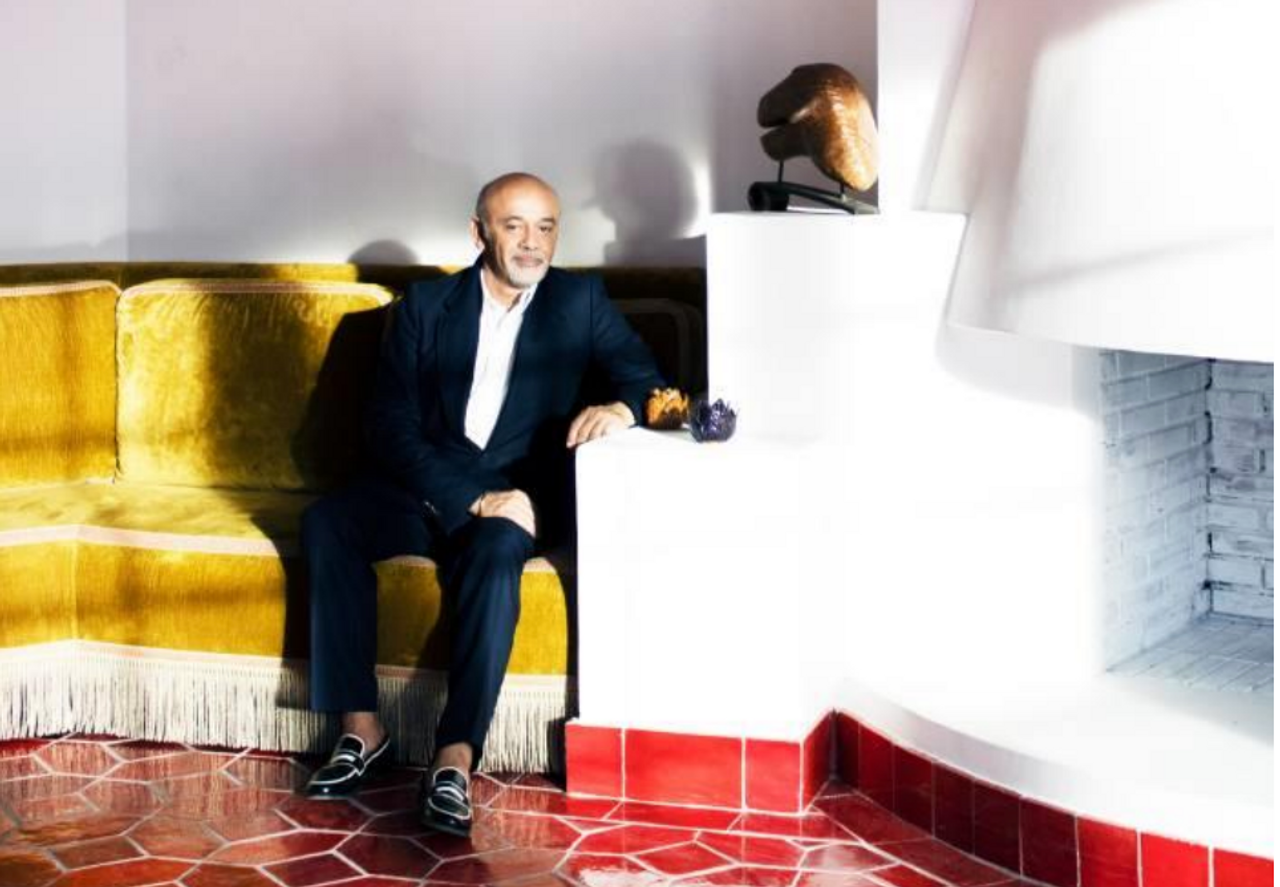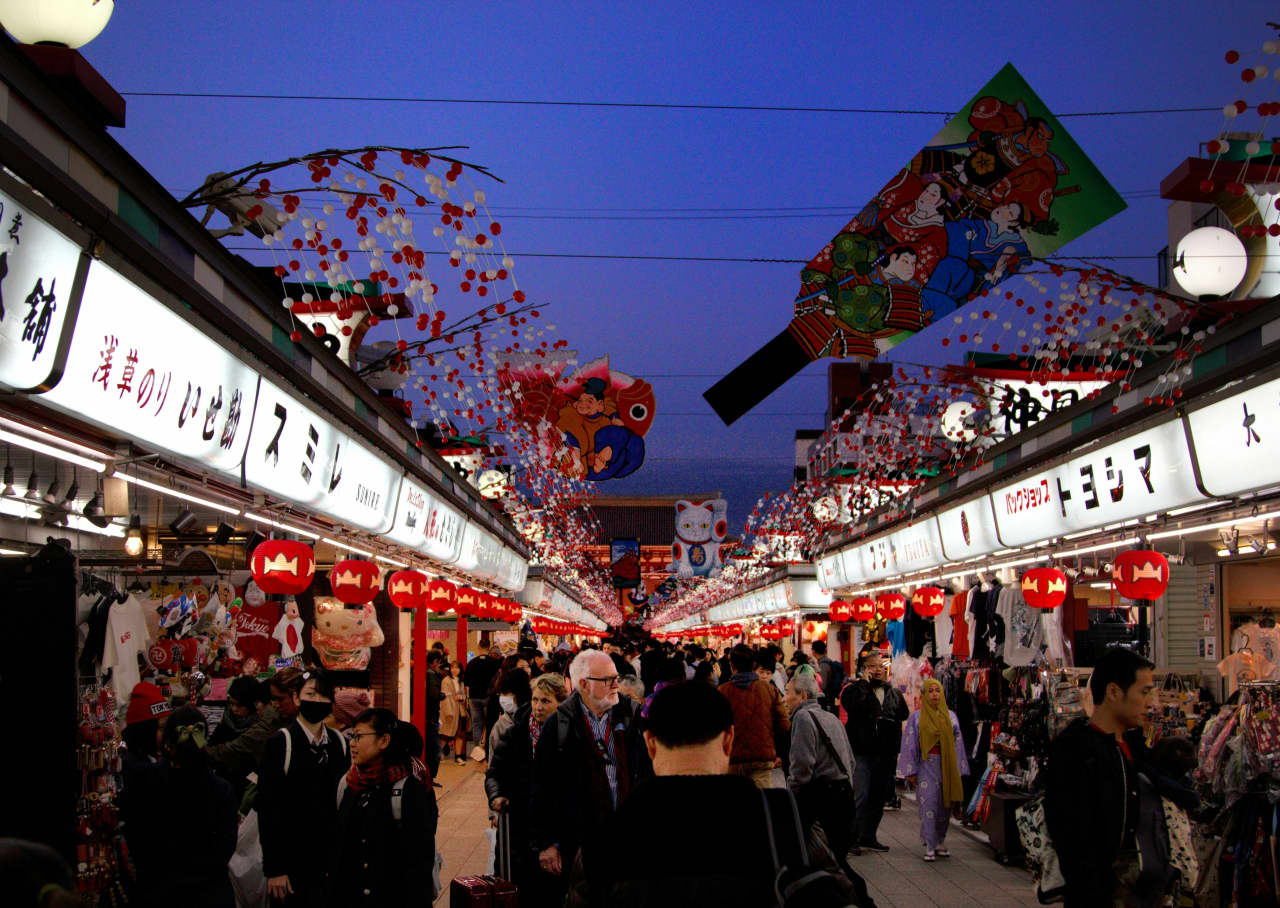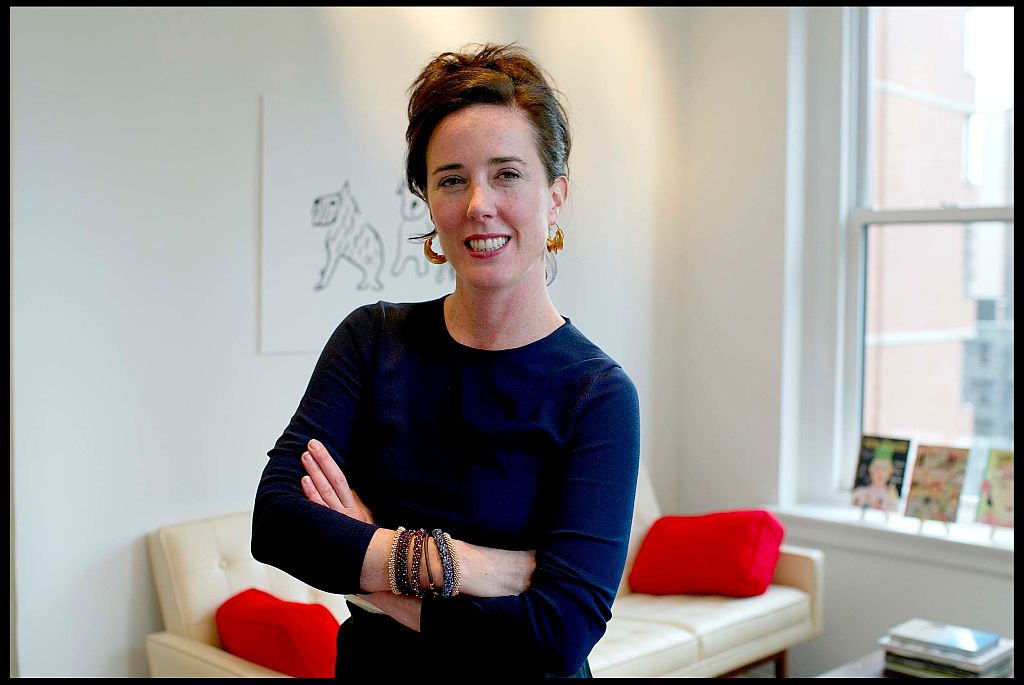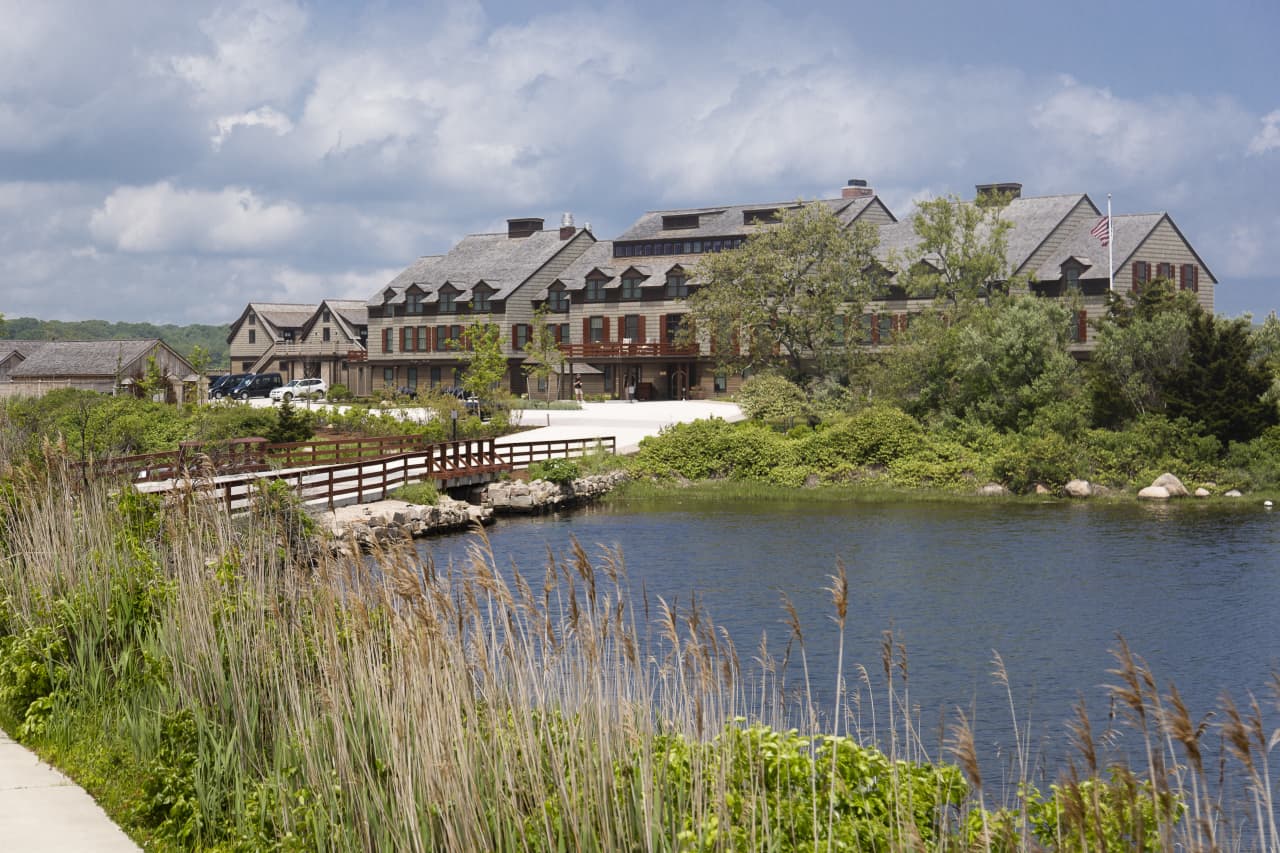Worldwise: Famed French Fashion Designer Christian Louboutin’s Favourite Things
As the founder of an eponymous fashion brand that counts legions of women and celebrities as ardent fans, Christian Louboutin has amassed a following that has garnered him fame in his own right. Most known for his stilettos with their unmistakable red-lacquered soles—the accessory that gave him his start—the Paris-born designer has since expanded beyond footwear with handbags, fragrances, makeup, and shoes for men.
Now comes a new venture all together: this April, Louboutin, 60, will open Vermelho Melides, a 13-room hotel in Melides, a small town in Portugal’s Alentejo region. It’s a rural, unspoiled destination of pine forests, rice lagoons, and beaches where he owns a restored former fisherman’s shack and visits every chance he gets.
Named after the Portuguese word for red, Vermelho Melides is meant to evoke the feeling of a friend’s home more than a hotel and features a litany of colors, materials, and styles from various eras. Art plays into the design, too, while dining and imbibing will unfold at XTian, a restaurant offering upscale Portuguese cuisine.
Louboutin, who was expelled from school three times and began designing shoes when he was a teenager, spoke to Penta about his favorite things from Rio de Janeiro, where he was attending Carnival and also has a home.
I first discovered Portugal… as a teenager on a backpacking trip. I traveled to Lisbon and Porto and instantly loved both. I went again eight years later—this time to Comporta, a small town about an hour south of Lisbon. It was idyllic and had the most beautiful stretch of beach. I didn’t visit again until almost a decade later. I had already started my company, and my friend, the designer Jacques Grange, invited me to stay with him at his home there. I ended up visiting for the next two summers and eventually bought a home in Comporta and then Melides.
My ideal day in Melides… begins by waking up at 7 a.m., going for a jog and jumping into the ocean for a swim. Then it’s breakfast with my friends and family. The rest of the day is very relaxed. I have a beautiful garden and might spend a few hours tending to my flowers and vegetables. Or it’s reading, sketching my next round of shoe designs, and visiting local markets. But really, being in Melides is about not doing much. In the evening, it’s a long dinner with friends at home or at a local restaurant.
A favourite souvenir from Melides is… a ceramic piece from the store Vida Dura in town. Everything is handmade in Portugal, and the owner has a fantastic eye for great finds. The dinnerware, jugs, glasses, and more are colourful and will remind you of your trip.
My most memorable hotel stay… was at Umaid Bhawan Palace in Jodhpur, India, in the Maharani suite. It’s a sprawling palace and gorgeous with Art Deco decor. My bed was huge, and so was the bathroom. More recently, it’s the Le Grand Controle on the grounds of Versailles. I went for Valentine’s Day with my boyfriend, and the property transported us to the world of French royalty. Alain Ducasse is behind the cuisine, and we had the most decadent multi-course with lots of French wine.
The destination on my bucket list is… the Azores Islands in Portugal. The architecture looks stunning, and it’s very much about appreciating nature like Melides. I want to visit Tasmania for the same reason.
My go-to vacation destination is… Bhutan. I visit every year. It’s a very spiritual place and again, nature dominates. I also love hiking, and the country has incredibly scenic hikes.
The shoes I wear for sightseeing are… loafers or flip-flops. I find them to be comfortable and easy to take on and off. Never sneakers, which I wear only when I’m running.
My travel essentials are… a great book and auction catalogs from Christie’s, Sotheby’s, and Bonhams—they’re my secret vice.
This interview has been edited for length and clarity.
 Copyright 2020, Dow Jones & Company, Inc. All Rights Reserved Worldwide. LEARN MORE
Copyright 2020, Dow Jones & Company, Inc. All Rights Reserved Worldwide. LEARN MORE
This stylish family home combines a classic palette and finishes with a flexible floorplan
Just 55 minutes from Sydney, make this your creative getaway located in the majestic Hawkesbury region.
The remote northern island wants more visitors: ‘It’s the rumbling before the herd is coming,’ one hotel manager says
As European hot spots become overcrowded , travellers are digging deeper to find those less-populated but still brag-worthy locations. Greenland, moving up the list, is bracing for its new popularity.
Aria Varasteh has been to 69 countries, including almost all of Europe. He now wants to visit more remote places and avoid spots swarmed by tourists—starting with Greenland.
“I want a taste of something different,” said the 34-year-old founder of a consulting firm serving clients in the Washington, D.C., area.
He originally planned to go to Nuuk, the island’s capital, this fall via out-of-the-way connections, given there wasn’t a nonstop flight from the U.S. But this month United Airlines announced a nonstop, four-hour flight from Newark Liberty International Airport in New Jersey to Nuuk. The route, beginning next summer, is a first for a U.S. airline, according to Greenland tourism officials.
It marks a significant milestone in the territory’s push for more international visitors. Airlines ran flights with a combined 55,000 seats to Greenland from April to August of this year, says Jens Lauridsen, chief executive officer of Greenland Airports. That figure will nearly double next year in the same period, he says, to about 105,000 seats.
The possible coming surge of travellers also presents a challenge for a vast island of 56,000 people as nearby destinations from Iceland to Spain grapple with the consequences of over tourism.
Greenlandic officials say they have watched closely and made deliberate efforts to slowly scale up their plans for visitors. An investment north of $700 million will yield three new airports, the first of which will open next month in Nuuk.
“It’s the rumbling before the herd is coming,” says Mads Mitchell, general manager of Hotel Nordbo, a 67-room property in Nuuk. The owner of his property is considering adding 50 more rooms to meet demand in the coming years.
Mitchell has recently met with travel agents from Brooklyn, N.Y., South Korea and China. He says he welcomes new tourists, but fears tourism will grow too quickly.
“Like in Barcelona, you get tired of tourists, because it’s too much and it pushes out the locals, that is my concern,” he says. “So it’s finding this balance of like showing the love for Greenland and showing the amazing possibilities, but not getting too much too fast.”
Greenland’s buildup
Greenland is an autonomous territory of Denmark more than three times the size of Texas. Tourists travel by boat or small aircraft when venturing to different regions—virtually no roads connect towns or settlements.
Greenland decided to invest in airport infrastructure in 2018 as part of an effort to expand tourism and its role in the economy, which is largely dependent on fishing and subsidies from Denmark. In the coming years, airports in Ilulissat and Qaqortoq, areas known for their scenic fjords, will open.
One narrow-body flight, like what United plans, will generate $200,000 in spending, including hotels, tours and other purchases, Lauridsen says. He calls it a “very significant economic impact.”
In 2023, foreign tourism brought a total of over $270 million to Greenland’s economy, according to Visit Greenland, the tourism and marketing arm owned by the government. Expedition cruises visit the territory, as well as adventure tours.
United will fly twice weekly to Nuuk on its 737 MAX 8, which will seat 166 passengers, starting in June .
“We look for new destinations, we look for hot destinations and destinations, most importantly, we can make money in,” Andrew Nocella , United’s chief commercial officer, said in the company’s earnings call earlier in October.
On the runway
Greenland has looked to nearby Iceland to learn from its experiences with tourism, says Air Greenland Group CEO Jacob Nitter Sørensen. Tiny Iceland still has about seven times the population of its western neighbour.
Nuuk’s new airport will become the new trans-Atlantic hub for Air Greenland, the national carrier. It flies to 14 airports and 46 heliports across the territory.
“Of course, there are discussions about avoiding mass tourism. But right now, I think there is a natural limit in terms of the receiving capacity,” Nitter says.
Air Greenland doesn’t fly nonstop from the U.S. because there isn’t currently enough space to accommodate all travellers in hotels, Nitter says. Air Greenland is building a new hotel in Ilulissat to increase capacity when the airport opens.
Nuuk has just over 550 hotel rooms, according to government documents. A tourism analysis published by Visit Greenland predicts there could be a shortage in rooms beginning in 2027. Most U.S. visitors will stay four to 10 nights, according to traveler sentiment data from Visit Greenland.
As travel picks up, visitors should expect more changes. Officials expect to pass new legislation that would further regulate tourism in time for the 2025 season. Rules on zoning would give local communities the power to limit tourism when needed, says Naaja H. Nathanielsen, minister for business, trade, raw materials, justice and gender equality.
Areas in a so-called red zone would ban tour operators. In northern Greenland, traditional hunting takes place at certain times of year and requires silence, which doesn’t work with cruise ships coming in, Nathanielsen says.
Part of the proposal would require tour operators to be locally based to ensure they pay taxes in Greenland and so that tourists receive local knowledge of the culture. Nathanielsen also plans to introduce a proposal to govern cruise tourism to ensure more travelers stay and eat locally, rather than just walk around for a few hours and grab a cup of coffee, she says.
Public sentiment has remained in favour of tourism as visitor arrivals have increased, Nathanielsen says.
—Roshan Fernandez contributed to this article.
This stylish family home combines a classic palette and finishes with a flexible floorplan
Just 55 minutes from Sydney, make this your creative getaway located in the majestic Hawkesbury region.






















